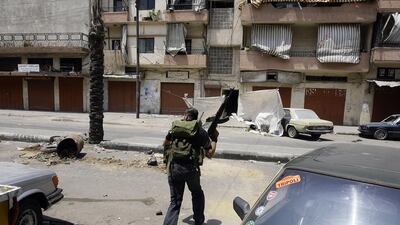Two men sporting long beards, military pants and black T-shirts walked into one of the corner markets in the southern Turkish coastal city of Iskenderun last May. Greeting the shop owner in Arabic, they wanted to know where the neighbourhood mosque was. Finding there wasn’t one, they asked if the shopkeeper was an Alawite. He was. ISIL “is coming to exterminate the entire kuffar Nusayri community,” one of the men shouted before leaving, using the derogatory term for Alawites. The incident sparked rumours that the militant group was building networks in the city. Paranoia has escalated to new heights among Arab Alawites in southern Turkey.
With an estimated population of more than 500,000 people, Turkey’s Arab Alawites find themselves at a perilous juncture. Assimilation has come at a steep cultural price – the Turkish state prohibited Arabic language education in schools and required Sunni religious instruction – to the degree that many younger Arab Alawites cannot speak, write or read Arabic.
“I want my children to learn about my culture, speak my mother tongue and communicate with fellow Arab Alawites in Syria,” says Samir, a teacher at a public school in western Turkey. In part, the community’s renewed interest in their identity is a by-product of the 2011 Syrian uprising. Despite Turkey’s support for the Syrian opposition, Arab Alawites in Turkey viewed Bashar Al Assad, also an Alawite, as a bulwark against past marginalisation.
These apprehensions have been reinforced with the rise of ISIL, which has wielded a fanatically sectarian narrative to recruit fighters. This includes the release of grim videos depicting ISIL members almost joyfully interrogating and executing Alawite prisoners after takeovers of several Syrian regime military bases in the past six months. Sunni extremist groups have also targeted Alawite civilians in Syria.
“ISIL executed the Latakia massacre in which 19 Alawi villages were raided,” says Hasan Sivri, a prominent Arab Alawite journalist with the Yakin Dogu Haber news agency.
“Groups like ISIL and Jabhat Al Nusra have gained ground through promising that they will exterminate Alawites in coastal Syria,” he maintains. Events such as the October 1 car bomb that detonated outside a school in the primarily Alawite district of Akrameh in Homs city, killing 42 children, lend credence to these views.
The killings sparked outrage among Arab Alawites in Turkey, and the community organised remembrance events to honour the children and protest against ISIL and Jabhat Al Nusra.
Add to this the Arab Alawites’ deteriorating relationship with Turkey’s ruling Islamist AKP. The sectarian overtones of Turkey’s anti-Assad policies threaten the relatively successful 80-year integration process of Arab Alawites.
For instance, after the May 2013 twin car bombs that killed Turkish citizens in the southern border town of Reyhanli, then prime minister Erdogan lamented the “martyred 53 Sunni citizens of ours”, thereby, explicitly injecting the subject of religious sect into the tragedy. The Arab Alawite community has also been affected by the Gezi Park protests, in which three young Arab Alawites were killed by police using disproportionate force to disperse the crowds. One of the victims, Ali Ismail Korkmaz, was beaten to death in the street and then denied treatment at a public hospital.
In response, young Arab Alawites have created a solidarity network called the Arab Alawite Youth Parliament across Turkey to discuss challenges and ways to deal with them. These forums have not chosen to mobilise yet but they identify three fundamental demands: the right to an Arabic language education, the reversion of town names to the original in historically Arab Iskanderun province, and official recognition as a minority community. These demands are not likely to be limited to the young and educated.
The Arab Alawite community in Turkey finds itself at a crossroads. As with other minority communities, religious and linguistic bonds that transgress national boundaries have become a liability. Yet there is some hope that there will be a lowering of tensions.
Recently, the Turkish government announced plans to offer a “reform package” that would address the issue of equal rights for the Alawites. For Arab Alawites in particular, it is hoped that the package covers issues of religion and language. These are cultural rights, which have long been demanded by other ethnic minorities such as Turkey’s large Kurdish population.
Both Arab Alawites and the Turkish government are in a better position to mend fences than countries racked by violence such as Syria and Iraq. But that’s only if they can overcome the sectarian antagonism that is rife across much of the region, before it is too late.
Ali Gokpinar is a former Fulbright fellow and a graduate of Brandeis University. Michael Page is a graduate student at the Harvard Kennedy School and has been a project manager at the research consultancy ARK

